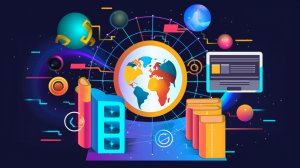As a member of the post-90s generation, my formative years coincided with the exponential growth of digital technologies. Upon moving to a bustling city for university, I found myself immersed in a world where smartphones and online shopping platforms were becoming ubiquitous. It’s fair to say that my generation is intricately woven into the fabric of digital advancements.
My academic journey has provided me with a unique perspective, blending insights from both business and information systems (IS) domains. Currently, my focus lies in human-computer/robot interaction, a field that constantly evolves alongside technological innovations. Through my research experiences, I’ve cultivated a deep understanding of specific information literacies, such as health information literacy and data literacy.
Upon delving into the materials for Topic 1 of this ONL course, I’ve come to appreciate the concept of digital literacies as dynamic and ever-changing. It’s not merely about mastering a set of skills but understanding that digital literacy evolves over time and varies across different contexts. Now, it is high time to consider AI in digital literacies. This conceptualization resonates deeply with me, especially considering its implications for teaching and education.
As an educator, I recognize that the majority of my students belong to the millennial generation, a cohort deeply entrenched in digital culture. Their familiarity with advanced digital innovations shapes their learning preferences and expectations. Thus, fostering engagement in the classroom requires tailoring my teaching approach to align with their digital inclinations.
For me, embracing the dynamism of the digital era is not just a professional imperative but also a personal edification. Staying active and adaptive in this ever-evolving landscape ensures that I remain relevant and effective in my role as an educator. It’s a journey of continuous learning and growth, one that I am committed to traversing alongside my students.

Photo credit: https://srinstitute.utoronto.ca/news/digital-literacy-will-be-key-in-a-world-transformed-by-ai